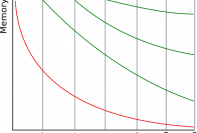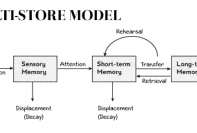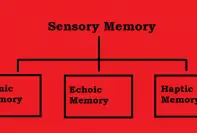The Seven Sins of Memory: How the Mind Forgets and Remembers is a book by Daniel Schacter, a longtime memory researcher, PhD, and chairperson of Harvard University’s psychology department.
Memory, for all that it does for us every day…for all the feats that can sometimes amaze us, can also be a troublemaker. – Schacter, regarding his book
Schacter has noted that same brain mechanisms are involved both memory’s strengths and sins. He explains that, these sins shouldn’t be taken as flaws in the architecture of memory, instead these should merely be considered as the costs paid for the benefits of memory. The Seven Sins of Memory can also be related with Seven Deadly Sins, which is the idea behind the book. He also argues that these sins can in fact serve useful purpose in the memory.
For Instance, persistence is something that is vital for long-term memory, but at the same time it can also lead to conditions like Post Traumatic Stress Syndrome.
Schacter defined seven sins of memory on his book. He has classified the sins into two different groups. The first three sins have been classified as sins of omission and the rest are classified as sins of commission.
Sins of Omission (Forgetting)
Failure to recall any event, idea or fact
- Transience
- Absent-mindedness
- Blocking
Sins of Commission
Memory of undesired fact, idea, or event
- Misattribution
- Suggestibility
- Bias
- Persistence
Overview
| Sin | Description |
|---|---|
| Transience |
Decreasing accessibility over time. |
| Absent-mindedness | Inattention to details leading to encoding failure |
| Blocking | Inaccessibility of stored information |
| Misattribution | Confusing the source of information |
| Suggestibility | Effects of false memory due to misinformation |
| Bias | Belief-colored memories |
| Persistence | Unwanted memories of the past |
Seven Sins
Transience
Transience is defined as the decreasing accessibility of memory over time. Memory is affected with aging and decay, but the condition might be extreme if hippocampus and temporal love has sustained any damage. A person who has transient memory is only capable of remembering present events than the past. The main cause of transience is interference. There are two types of interference.
- Proactive Interference: Old memories restrain the capacity to remember new information.
- Retroactive Interference: New memories restrain the capacity to remember old information.
Absent-mindedness
Absent-mindedness is paying less attention to details which leads to encoding failure. Encoding stage refers to the moment when the memory is formed and retrieval stage refers to the moment when memory is accessed. This form of memory breakdown operates in both encoding and retrieval stage of the memory. Simply speaking, absent-mindedness affects attention and interface of memory. Common examples of memory include misplacing the keys, glasses, forgetting appointments and so on. This happens because enough attention was not paid while encoding the information. Thus, there is nothing concrete to retrieve later on.
For instance, In his famous book, Schacter has illustrated the example of a famous cellist Yo-Yo Mama who forgot to retrieve the cello from the trunk of a New York City cab. The cello was worth $2.5 million.
Blocking
Temporary inaccessibility of stored information while trying to retrieve is referred as blocking. This sin is responsible for the tip-of-the-tongue phenomenon. Speaking in more practical terms, you know the times when you feel like you know something, it’s already stuck in your tongue, but you don’t seem to be able to recall enough information to be able to say it out loud.
For instance, you know about that tall guy in that movie, the one with amazing hair. No, I am not talking about Ryan Gosling. You know that guy. I know his name; I can even see his face. It’s ridiculous.
Misattribution
Attributing the memories to incorrect sources is referred as misattribution. Remember the instances when you or your friend thought you had seen or something, but in reality you hadn’t. Psychologists have also defined hat arousal from one particular situation can be transferred to another situation or event, which can thus affect our response in a totally different event.
For instance, my friend recently had his results published. He was so sure that he had achieved 68 in psychology. But, it later turned out that he had only got 36 marks in the subject, and 68 marks was in a completely different psychology.
Suggestibility
The acceptance of false suggestions made by others is referred as suggestibility. Memories can be influenced by simple emphasis on certain aspects of the past memories. The individual sometimes become unable to judge the validity of the memory and might remember completely different things even if it’s not true.
For instance, a person might witness a crime being committed by a man wearing black suit. However, he sees in the TV that the murderer was wearing red suit instead. The witness now starts to remember the man in a red suit instead of the man in the black suit, whom he had originally seen.
Bias
Present feelings and point of view might deteriorate the memories of the past, known as belief-colored memory. This sin is referred as sin of bias, which is quite similar to the sin of suggestibility in some ways. Current beliefs and knowledge are constantly playing parts in the ways we recall our memory.
For instance, a person might have been going through a bad relationship. She might now come to recall completely negative takes on past relationships too.
Persistence
Persistence is a sin of memory which doesn’t let a person forget unwanted recollections of the past. This sin is responsible for the condition called Post Traumatic Stress Disorder.
For instance, Sam lost control of the steering wheel while driving in the snow at night, which resulted in the death of his little brother. Now, even though it wasn’t intentional and Sam’s not to blame for the accident, Sam takes it upon himself and he simply cannot shake off the feeling of guilt and that depressing memory. In Schacter’s words, he
Became a tragic prisoner of memory




